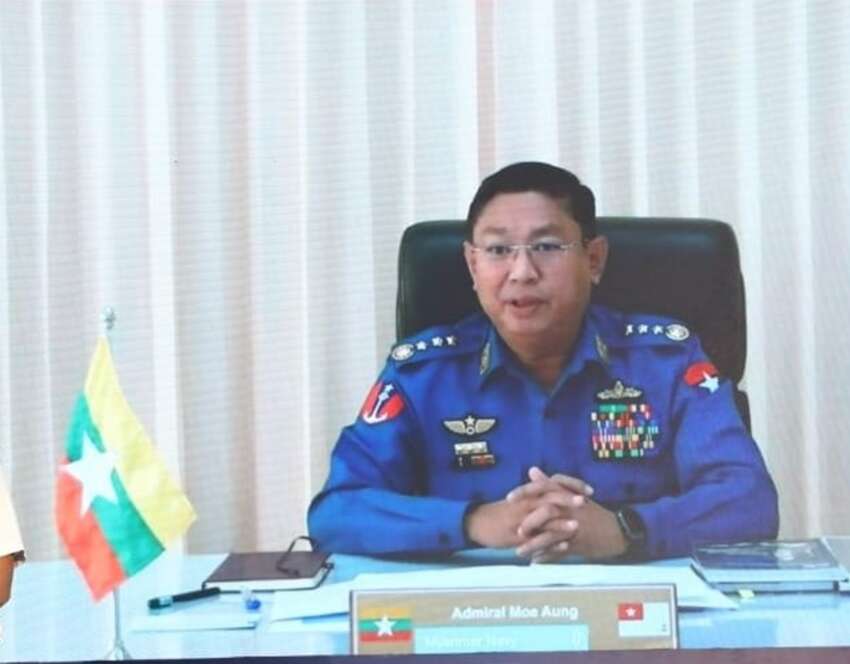
According to military sources in Naypyidaw, following the terrorist military council leader Min Aung Hlaing’s removal of Navy Chief Admiral Moe Aung from his position, the future of United Amara Bank (UAB) and IGE Company has become uncertain. Admiral Moe Aung was notably absent from the military council’s farewell ceremony on July 30, and after the July 31 security council meeting, he was not included in either the newly restructured government or military commission, completely disappearing from Naypyidaw.
Once supported by former dictator Than Shwe, former Industry Minister Aung Thaung had built a vast business empire, and his children – Moe Aung, Nay Aung, Pyi Aung, and Khin Ngu Yi Phyo – had gained significant control over banking, military-related hydroelectric projects, energy projects, oil and natural gas operations, and nuclear projects. However, competition emerged between the business groups led by Min Aung Hlaing’s son Aung Pyae Sone and the UAB and IGE companies owned by Aung Thaung’s children.
Particularly intense conflicts arose in solar power projects and oil and energy business ventures, with IGE Company being heavily involved in the military council’s energy projects. Starting in 2024, the military council began revoking some projects previously awarded to IGE Company, notably withdrawing IGE’s authority in the preliminary nuclear power plant construction project with Russia. The removal of Admiral Moe Aung may mark the beginning of the decline of Aung Thaung’s once-powerful business empire, while UAB Bank is currently under strict monitoring and sanctions from the military council’s central bank. In July 2024, UAB Bank, along with six other private banks, faced penalties for exceeding central bank-mandated lending limits on housing loans.
The situation reflects the ongoing power struggle within Myanmar’s military-business complex, with the military council systematically dismantling previously established business networks while consolidating control under its preferred entities. This development has significant implications for Myanmar’s business landscape, particularly in the banking and energy sectors, where UAB and IGE have been major players. The removal of Admiral Moe Aung and the subsequent pressure on associated businesses demonstrates the military council’s continued efforts to centralize economic power under its direct control.



